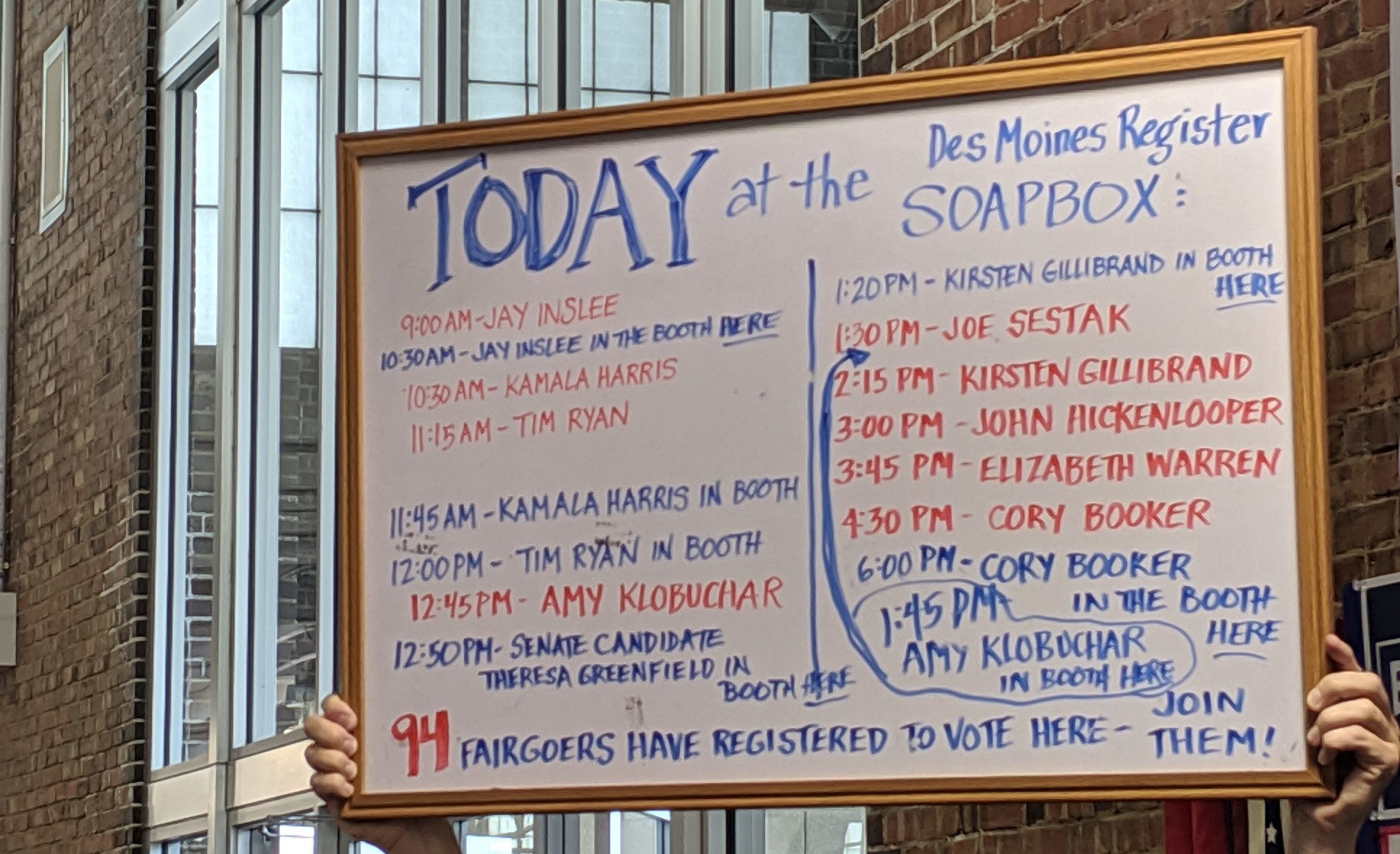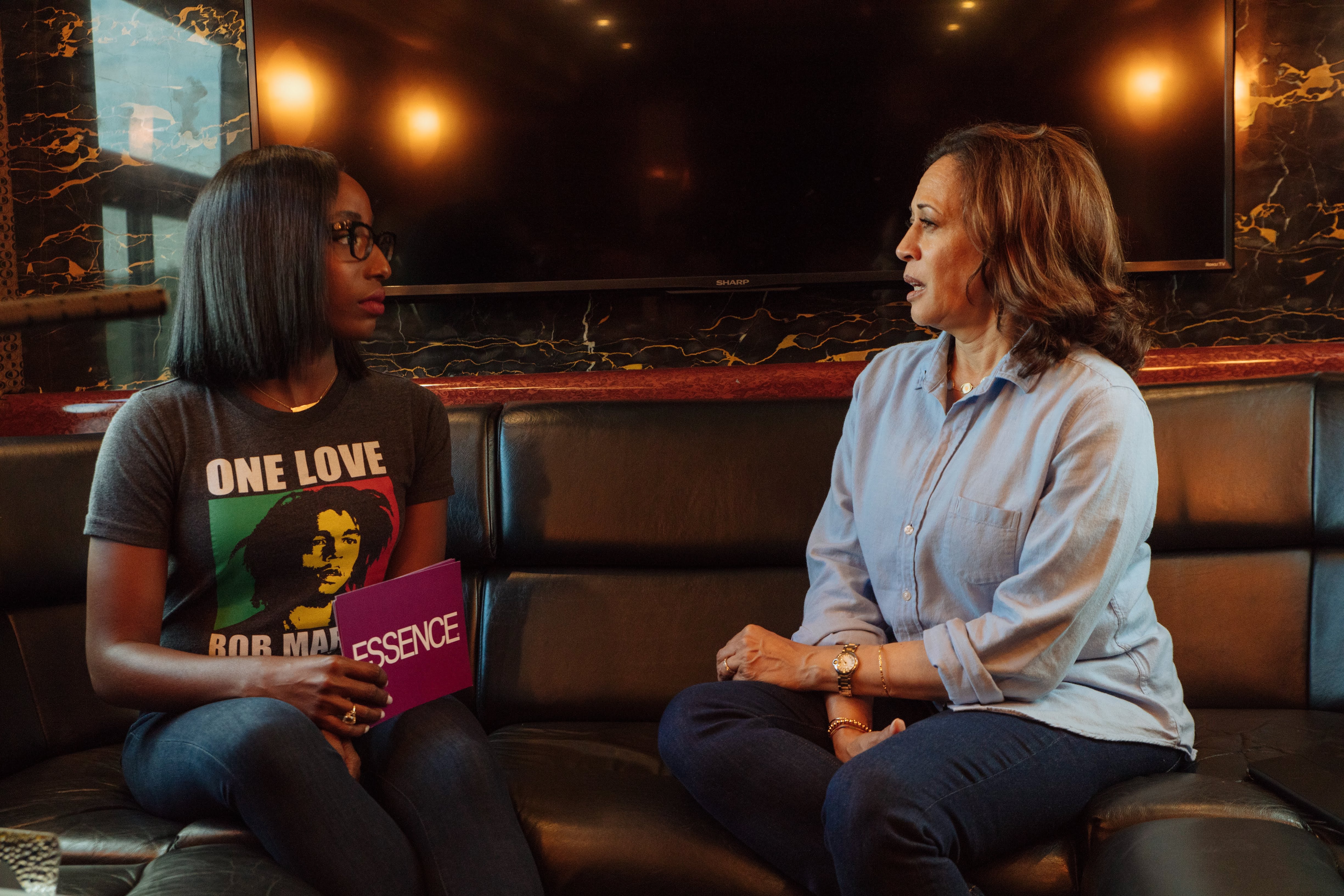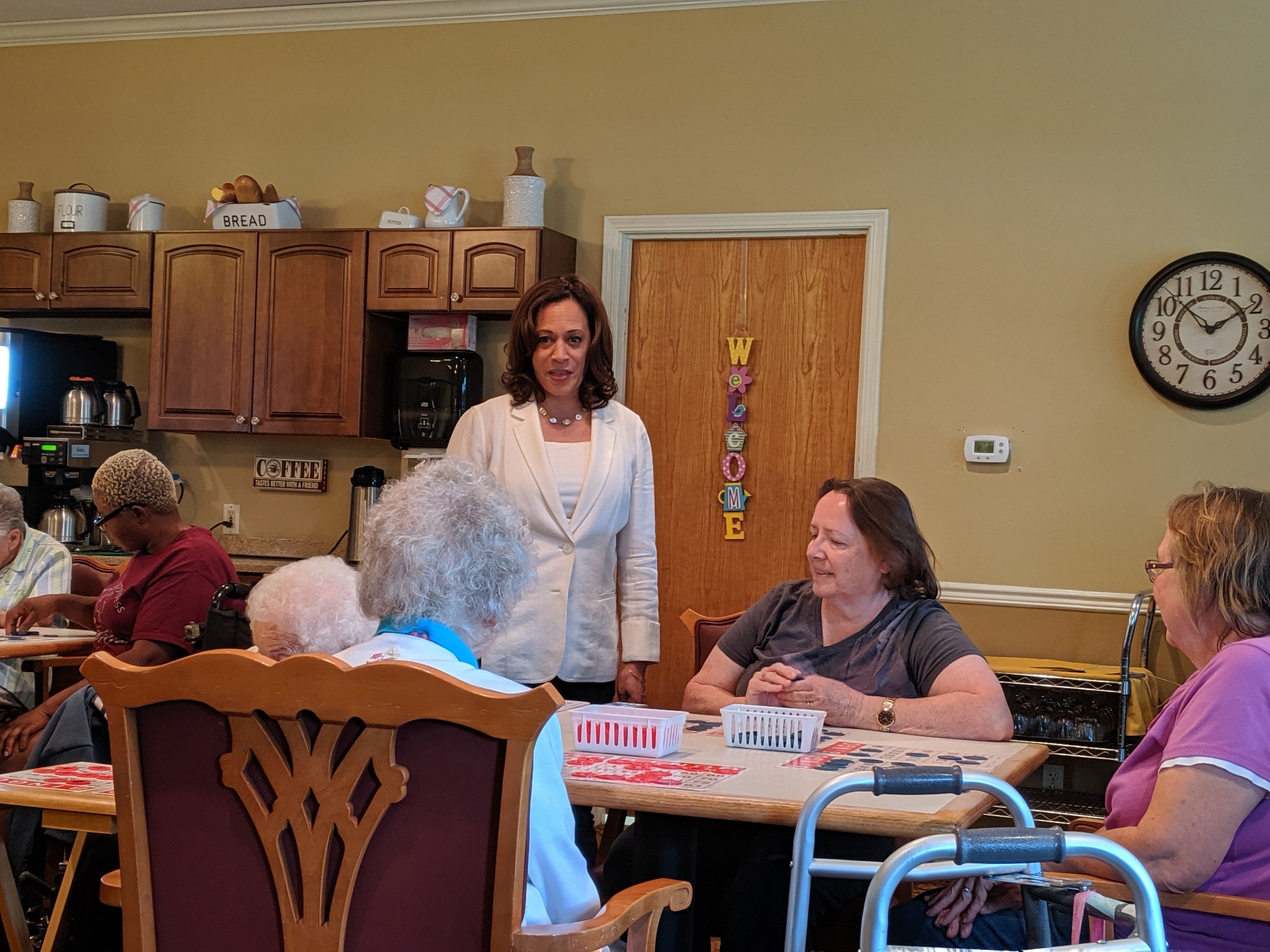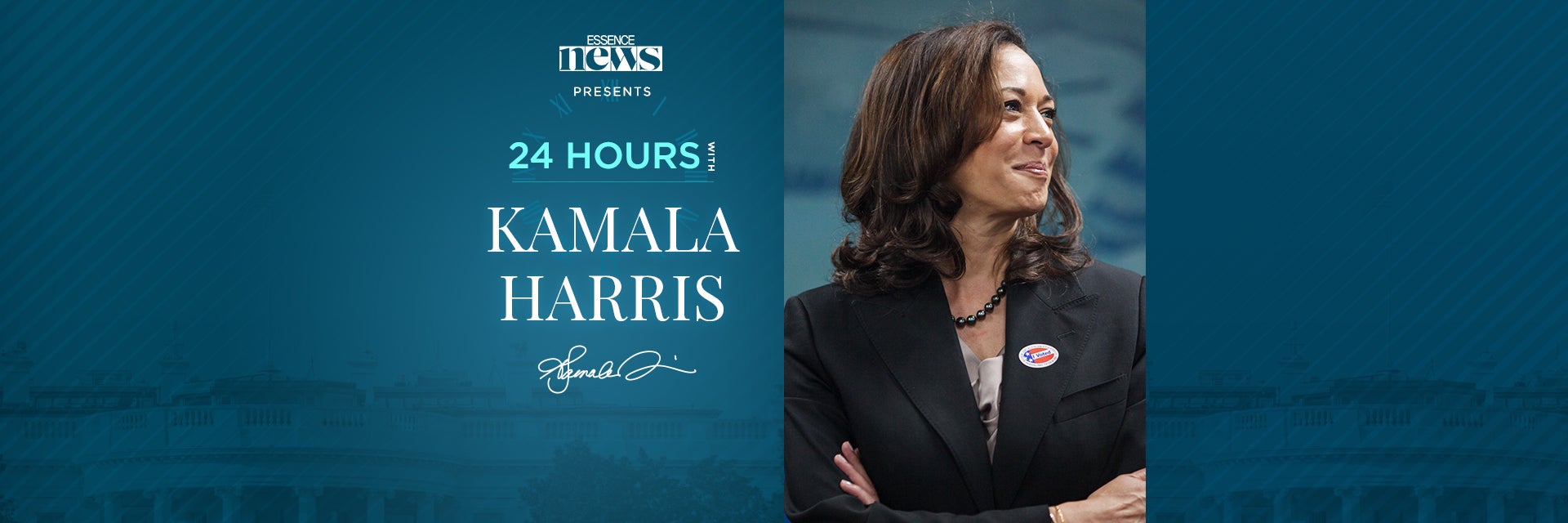The presidential campaign trail is where a candidate comes alive. Where they make a definitive statement on who they will be as a Commander-in-Chief and meet with the individual people who collectively hold the power to catapult them toward that position. On a recent trip to Iowa, ESSENCE was given the opportunity to witness exactly what that looks like for candidate Kamala Harris.
Since announcing her run for office on Martin Luther King Day of this year, Harris, the only Black woman vying for the reins of the White House in 2020, has polled in the top five of a very crowded Democratic field. But given the majority-white makeup of the battleground state, apprehension of her reception in the home of U.S. Rep. Steve King, followed me from the gates of my Delta flight to the check-in at my Des Moines hotel.
It wouldn’t be Harris’ first trip to the midwestern state, but it was certainly mine. And I was anxious to see just how effective the Howard grad would be in commanding attention in a space where most voters did not look like her. Microaggressions toward Black women exist. Microaggressions against powerful Black women like Harris — well they’re inevitable.
On the surface, Harris doesn’t let those realities phase her. Covering ground at the Iowa State Fair, the California Senator worked the circuit much like the rest of the candidates. She delivered a roaring Soapbox speech, ate a pork chop as cameras flashed, and stopped by the Democratic booth to say hello to supporters. But there were moments — many of them in fact, when the unique experiences of her racial makeup became apparent.

While the state fair was a pleasant introduction to the weekend-long experience, waiting less than an hour away from the corn dogs and carnival rides, was a young man who wanted to know how Harris, as President of the United States, would expand the conversation on gun control to include Black and Latino communities. Seemingly triggered, the former prosecutor acknowledged his concern, and reaffirmed that “Black and Brown men should not be thought of as disposable.”
On the bus, Harris took that question a step further by adding that her work in the San Francisco DA’s office prepared her to be a compassionate ally in the fight to reduce gun violence in communities of color. “Women would come to my office when I was DA, and demand that they only talk to me. They only wanted to talk to me,” Harris shared of her interactions with mothers and wives who lost loved ones to violence.
But even so, Harris’ record as a prosecutor has left many in the Black community leery of putting their support behind her. Though Joe Biden helped author the 1994 Crime Bill that led to mass incarceration, a BWR x ESSENCE poll shows that the one-time attorney general trails the former vice president and Vermont Sen. Bernie Sanders among Black women voters. This is both with older constituents and those in the 18-34 year-old age range, respectively.

When asked about her past in law enforcement, Harris maintained that there’s more than one way to change the system. “I reject the notion that says that if you try and fix the system from the inside then you are somehow suspect,” Harris contended before adding that she’s proud of the work she accomplished in that role.
On the trail, her former position came up often. Not because people asked about it, but because the Senator has made it a benchmark of her stump speech. In Harris’ words, the country needs someone with her experience to prosecute the case against four more years of Donald J. Trump. And most of the attendees at her rallies would agree. From Des Moines to Davenport, fans of Harris would echo those sentiments: “I believe in her.” “I think she can take on Donald Trump.” And the favorite, “Dude gotta go.” Whether the conversation was women’s rights, drug addiction or affordable housing, Iowans believed that she had a better plan than the man who currently occupies the Oval Office.

How that nets out against other candidates striving for the top office is yet to be determined, but on her “3 AM Agenda” tour, Harris made sure to strike an equal balance of tough enough to take on the fight, but compassionate enough to understand the struggle of everyday Americans. More than anything, she confidently conveyed that the ideas that keep us up in the witching hour are the issues she wants to tackle as President.
Since our time on the bus tour, Harris has rolled out a plan on climate change, addressed paid medical leave, and shared how she plans to overhaul the criminal justice system. She’s also announced that she plans to spend more time in the Hawkeye State, the first in the nation to decide who they’ll support in 2020. Capturing the heart of Iowans as a Black woman sounds like an uphill battle, but as she told the congregation at Corinthian Baptist Church in Des Moines, “If we have faith to see what can be — unburdened by what has been, we move mountains.”
